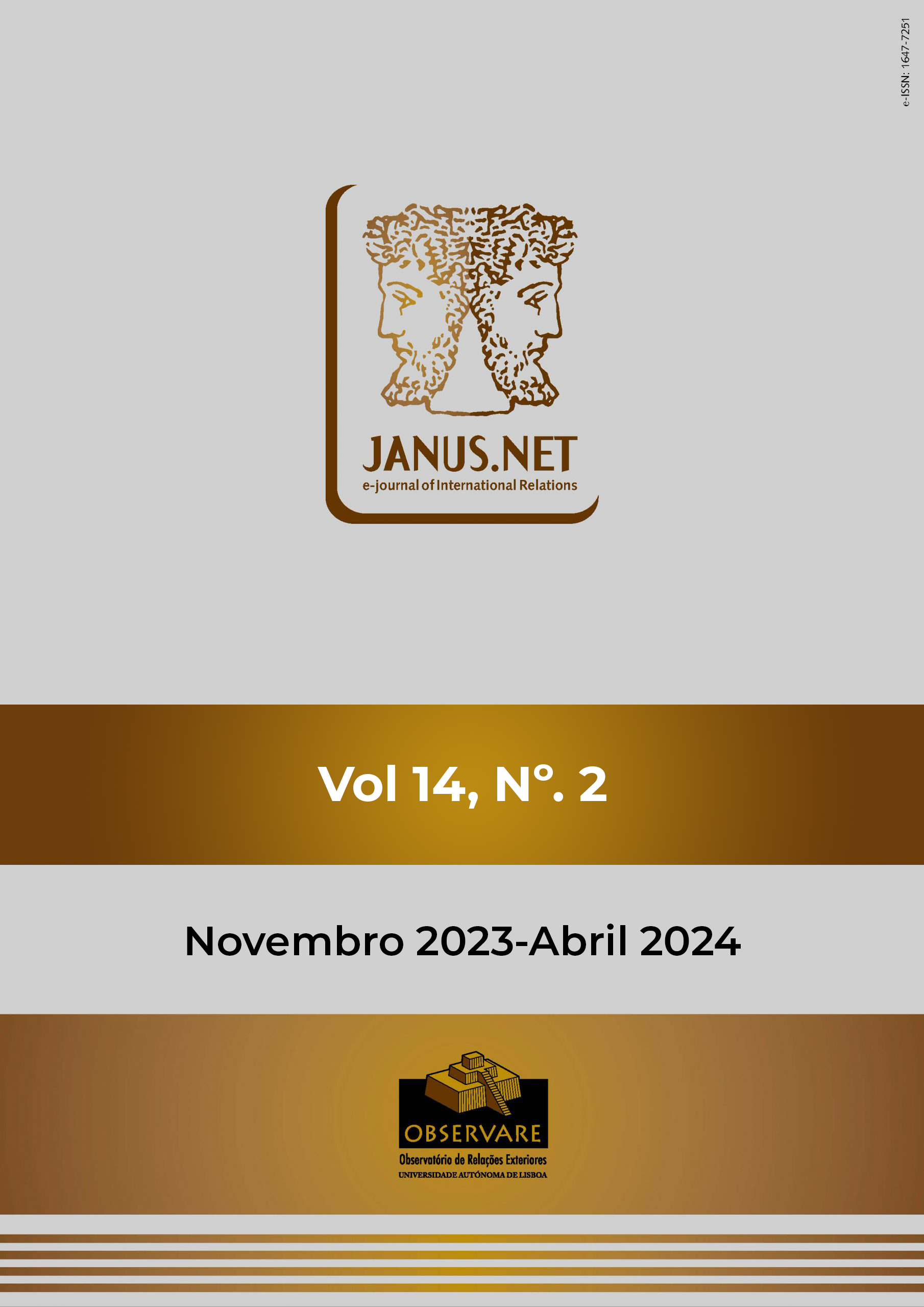UKRAINE EFFECT: ARE WE GROPING FOR A NEW WORLD ORDER?
DOI:
https://doi.org/10.26619/1647-7251.14.2.3Palavras-chave:
Conflito armado na Ucrânia, Nova Ordem Mundial, Ordem Liberal, Era Pós-Guerra Fria, EUA, China, Índia, RússiaResumo
A invasão da Ucrânia pela Rússia veio perturbar a ordem mundial contemporânea e, com ela, os sistemas energéticos, de produção, de abastecimento e financeiros mundiais estão em profunda crise. Em muitos aspectos, a guerra recapitula os horrores terríveis das duas guerras mundiais. O conflito entre Moscovo e Kiev está a desenrolar-se no contexto de outras crises e cataclismos correspondentemente significativos, por exemplo, a continuação da pandemia do coronavírus, o agravamento das tensões, nomeadamente nas relações entre os EUA e a China, a retirada dos EUA do Afeganistão, a incerteza na região do Sahel, a interminável guerra civil no Iémen, o aumento da polarização nuclear na Coreia do Norte e um novo padrão de rearmamento europeu. O custo da guerra está a ter ramificações geopolíticas e económicas no resto do mundo. A agressão russa na Ucrânia é uma manifestação da luta por uma nova ordem mundial. A Rússia e a China estão a desafiar abertamente a Pax Americana, muito para além do domínio económico visível. A recente Iniciativa de Segurança Global (GSI) apresentada pelo Presidente chinês, em abril de 2022, no fórum BOAO, as narrativas associadas às conversações de defesa de Shangri-La 2022, a Iniciativa de Desenvolvimento Global proposta na Assembleia Geral das Nações Unidas de 2021 e a Rede Mundial de Grupos de Reflexão para Estudos sobre a Democracia, sublinharam esta evidência. Como afirma Kuo, a GSI é "um plano para integrar as prioridades e práticas de segurança da China (...) Usando a égide da ONU, Pequim está a promover a China como árbitro de disputas primus inter pares, arquiteto de novos quadros de segurança regional e formador de profissionais de segurança
e forças policiais nos países em desenvolvimento" (Kuo, 2023). Mas a questão de saber como será a próxima ordem mundial continua em aberto. A guerra russa na Ucrânia acelerou uma mudança na ordem mundial, obrigando a um novo equilíbrio de poder. Há uma avaliação alargada de que o "efeito Ucrânia" pode ser tão abrangente na reestruturação das relações mundiais como a cadeia de acontecimentos que se seguiu ao colapso da União Soviética em 1989, com a expetativa de que, desta vez, a mudança de poder possa estar longe da hegemonia de Washington. Desde o ataque do Presidente Vladimir Putin à Ucrânia, em 24 de fevereiro de 2022, proliferam as investigações e os trabalhos académicos sobre a futura configuração da ordem mundial. Por conseguinte, estes desenvolvimentos levantam questões: Será que a ideia de um "fim" da história é uma falácia? Não haverá dificuldades fundamentais nas políticas liberais que possam alimentar a luta e as contradições? Será a Ucrânia um sinal de alarme para a ordem liberal ocidental? As democracias liberais devem ter em conta a rápida emergência de uma nova ordem internacional, menos condicionada pelas velhas lealdades ideológicas, mais realista e transacional e orientada por interesses nacionais? Como podemos compreender o alinhamento diplomático aberto entre a China e a Rússia? Este artigo apresenta uma discussão analítica sobre os desenvolvimentos da Nova Guerra Fria e a ordem mundial emergente no contexto dos conflitos em curso e do reequilíbrio de poderes. A este respeito, o artigo aborda algumas das principais características do novo sistema de configuração do poder internacional, as aparentes derivas e as novas ameaças nas relações internacionais.


